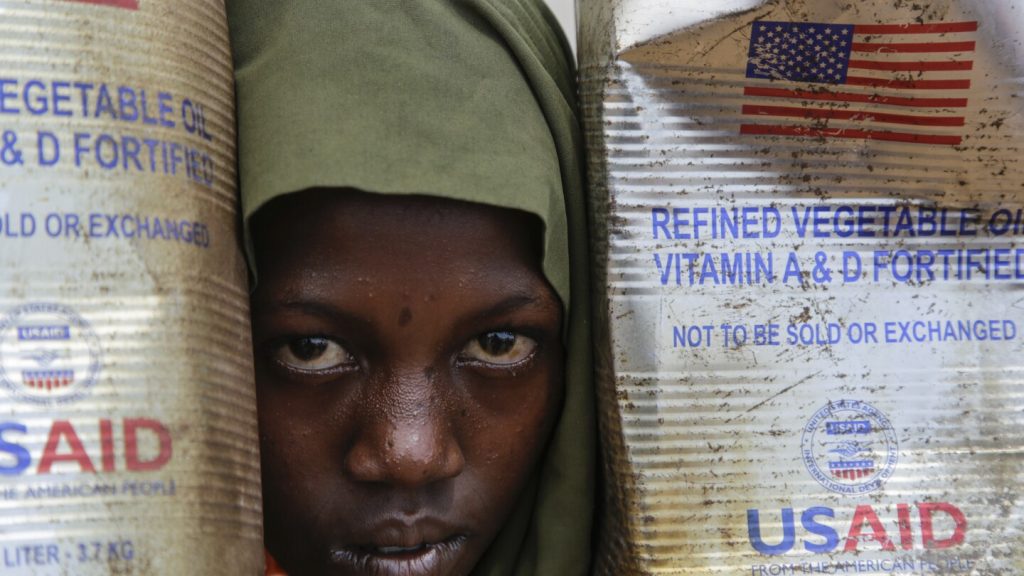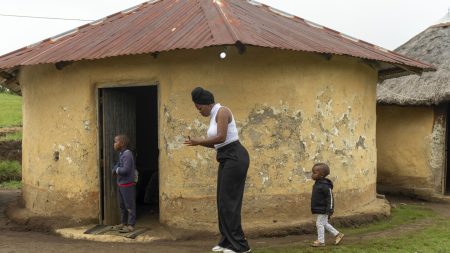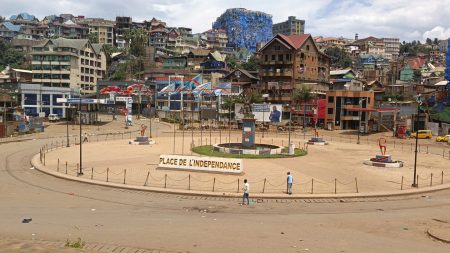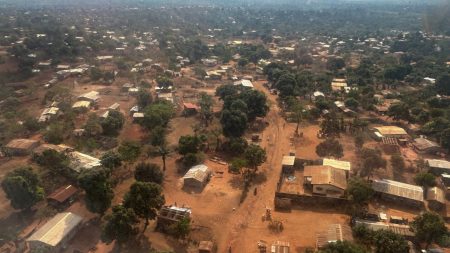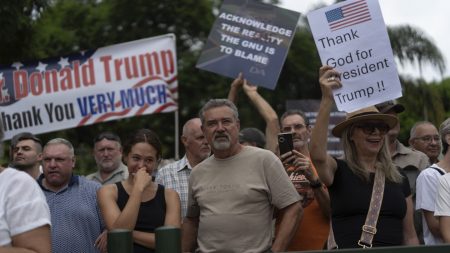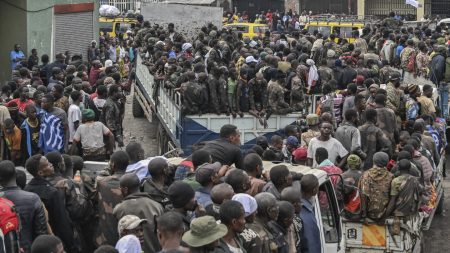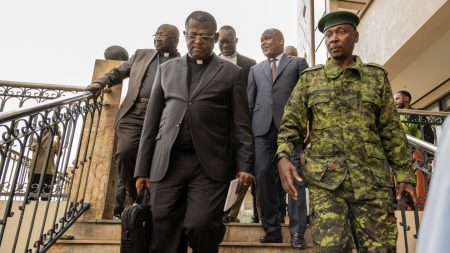The Far-Reaching Impact of Trump’s Foreign Aid Freeze
In a world already grappling with immense humanitarian challenges, U.S. President Donald Trump’s decision to freeze most of the country’s foreign aid has sent shockwaves across the globe. The executive order, effective for 90 days following its issuance on January 20, has raised deep concerns about the fate of millions of vulnerable people who rely on U.S. assistance for survival. The United States, as the largest provider of foreign aid worldwide, allocated approximately $60 billion in 2023, representing about 1% of its total budget. This aid is a lifeline for countries like Somalia, where decades of conflict, natural disasters, and food insecurity have left millions in dire need of support. The abrupt halt of these funds has created użytkowników displacement camps, healthcare providers, and aid organizations scrambling to cope with the sudden loss of resources.
Somalia’s Growing Dependency on International Aid
Somalia, a Horn of Africa nation, is among the countries most heavily dependent on foreign aid. Decades of civil war, a relentless insurgency by the homegrown Islamic extremist group Al-Shabab, and recurring natural disasters have left the country in a state of perpetual crisis. According to the United Nations Refugee Agency, Somalia is home to approximately 3 million internally displaced persons (IDPs), many of whom live in makeshift camps on the fringes of cities like Mogadishu. These individuals rely almost entirely on humanitarian aid for basic necessities such as food, shelter, and healthcare.
The country’s vulnerability is compounded by the effects of climate change, including severe droughts that have exacerbated food insecurity and displaced even more people. International aid has long been the backbone of Somalia’s humanitarian response, providing critical support to those affected by conflict and natural disasters. However, President Trump’s decision to freeze U.S. foreign aid has thrown this fragile system into chaos, leaving millions wondering how they will survive without the aid they have come to depend on.
The Role of USAID in Somalia Before the Freeze
The United States Agency for International Development (USAID) has historically played a pivotal role in Somalia’s humanitarian response. In 2021 alone, USAID allocated $369 million to address the country’s most pressing needs, including emergency nutrition, sanitation programs, and support for IDP camps. These funds were channeled through both government agencies and non-governmental organizations (NGOs), which worked tirelessly to deliver life-saving services to Somalia’s most vulnerable populations.
From providing food rations and clean water to supporting healthcare services and protecting women from gender-based violence, USAID’s contributions were vast and far-reaching. The agency’s programs also addressed long-term challenges, such as building resilience to droughts and fostering economic recovery in a country where decades of instability have stifled development. However, the sudden suspension of these funds has left a gaping void in Somalia’s humanitarian landscape, threatening to undo years of progress.
The Immediate Consequences for IDP Camps
The impact of President Trump’s decision has been most acutely felt in Somalia’s IDP camps, where tens of thousands of people live in dire conditions. The Dooxdoox IDP camp on the outskirts of Mogadishu, home to nearly 8,000 households, has been particularly hard-hit. Ayan Ali Hussein, the camp’s chairwoman, described how the suspension of USAID funding led to an almost immediate shutdown of basic services. Among the most critical losses are the camp’s ability to treat malnourished children, provide shelter materials, and offer support to women who have experienced gender-based violence.
The closure of these services has left camp residents feeling abandoned and hopeless. Ruqiya Abdulle Ubeyd, an 85-year-old mother of eight who lives in the camp, expressed her shock and dismay at the decision. “We are appealing to the U.S. government to restore the aid it used to give to vulnerable people,” she said, echoing the sentiments of many in the camp. With no clear alternative sources of funding, the residents of Dooxdoox and similar camps are bracing themselves for an increasingly uncertain future.
Stories from the Ground: The Human Cost of the Aid Freeze
The stories of those affected by the aid freeze highlight the human cost of President Trump’s decision. In the Dooxdoox camp, families like Hussein Abikar’s rely on organizations like the Somali Young Doctors Association (SOYDA) for medical care. Abikar, a father of five, recounted how his children previously received life-saving treatment at SOYDA’s clinic. “There is no other place where we could find such support,” he said, underscoring the irreplaceable role of these organizations in the lives of IDP camp residents.
Dr. Abdiqani Sheikh Omar, SOYDA’s founder and a former top official in Somalia’s health ministry, described the devastating impact of the funding shortfall. The organization, which previously received significant support from USAID, has been forced to prioritize critical nutrition and hygiene programs while scaling back other essential services. Many of its workers face immediate job losses, and the group is now relying on volunteer health professionals to fill the gap. These measures, while necessary, are a stark reminder of the challenges ahead.
The Uncertain Future for Somalia’s Most Vulnerable
As the days turn into weeks, the suspension of U.S. foreign aid continues to cast a long shadow over Somalia’s humanitarian landscape. The freeze has not only disrupted critical services but also raised questions about the long-term viability of programs designed to support the country’s most vulnerable populations. For organizations like SOYDA, which had plans to expand its services in 2025 with $125 million in USAID funding, the future is now increasingly uncertain.
The global community is watching closely as Somalia struggles to navigate this crisis. Advocates are urging the U.S. government to reconsider its decision, emphasizing the moral and humanitarian imperative to restore aid to those who need it most. As Ayan Ali Hussein so eloquently put it, “The suspension of USAID has left a huge void in our lives.” For Somalia’s IDP camps, the coming months will be a test of resilience, solidarity, and the world’s commitment to upholding the dignity and survival of its most vulnerable members.





